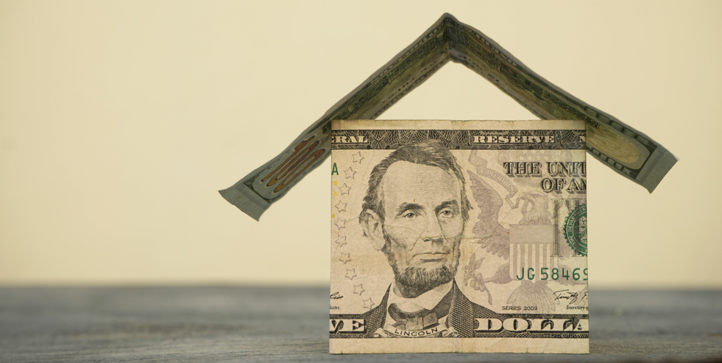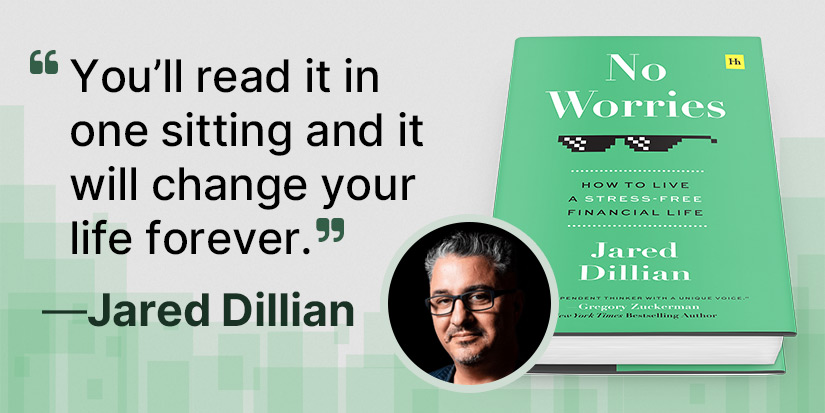
Is a Hot Dog a Sandwich? (Part 2)
-
 Jared Dillian
Jared Dillian
- |
- August 30, 2018
- |
- Comments
Last week, we said we were going to talk about prepaying mortgages. So let’s talk about prepaying mortgages.
Every mortgage comes with an embedded option—the option to prepay1. That may take the form of sending smaller prepayments every few months or so. Or, more commonly, it takes the form of prepaying the whole thing at once.
Naturally, you can pay off the mortgage if you move and sell the house. But even if you don’t move, you can pay off the mortgage and get another, cheaper one (if interest rates go down). This, of course, is known as refinancing.
There are calculations you can do to figure out if it makes economic sense for you to refinance your mortgage—we won’t go into that here. Basically, there is some paperwork involved, and you have to pay for an appraisal and a few other things. It takes a little time. Anyone who has refinanced has probably discovered that it is more work than they thought.
Anyway, it makes sense to refinance your mortgage if interest rates go down. If you have a 4.5% interest rate on your mortgage, and rates decline to 3.5%, you can probably save a few hundred dollars on your monthly payment.
To Prepay or Not to Prepay
The same decision matrix applies to prepayments. It makes sense to send in additional principal when rates go down, because you are technically earning 4.5% by prepaying your mortgage. And because interest rates have declined, opportunities to make 4.5% elsewhere have disappeared.
It can also make sense to prepay your mortgage when interest rates go up, for safety reasons, which we will talk about in a second.
I’m sure many readers of this newsletter think that earning 4.5% is not very sexy. Au contraire. It is the sexiest thing I have ever seen. That 4.5% is a sure thing2. It’s like a T-bill yield. There aren’t many opportunities to earn 4.5% risk-free anywhere these days. If you think there are, you are probably spending too much time hanging out on StockTwits.
So the question is: When should I prepay my mortgage, and when should I invest? Should I pay off all my debt before I invest a dime?
Answer: You should pay off all debt except for your mortgage (which is tax-advantaged). You should chip away at that over time. Liquidity is important, too—if you pay off your mortgage but have no cash for emergencies, that isn’t very smart. Once you have paid off your car loan and your credit cards and your student loans, you can do these three things:
- Prepay your mortgage
- Save cash
- Invest
Your goal should be to be completely debt-free (including the mortgage) in 5-7 years.
Caveats
Let’s talk a little bit about asset allocation.
Most people want an asset allocation that looks like this:
- 60% stocks
- 40% bonds
We will talk about the wisdom of 60/40 another time. Now, are you diversified if you have stocks and bonds? Not really. To help with diversification, you can instead have an asset allocation that looks like this:
- 55% stocks
- 35% bonds
- 10% commodities
But we are leaving out one big thing. We are leaving out…
Like what you're reading?
Get this free newsletter in your inbox every Thursday! Read our privacy policy here.
I think real estate should make up about 20-30% of your portfolio, for diversification purposes. Then, your asset allocation looks something like this:
- 40% stocks
- 30% bonds
- 20% real estate
- 10% commodities
Now, the allocation to real estate isn’t the notional value of your home; it’s the equity in your home. So a typical asset allocation might look like this:
- $80,000 in stocks
- $60,000 in bonds
- $40,000 in real estate
- $20,000 in commodities
The $40,000 here represents equity in your home. If you have a $200,000 home, and you have $40,000 in equity, you have 20% equity.
All easy enough.
But Debt Is Still the Enemy
Overriding all of this is that you should have a bias to pay down debt. As we have said in previous issues, we like mortgage debt better than other kinds of debt. But it is still debt. And the bank can still foreclose on you even if you have a one penny balance on your mortgage3. So paying down your mortgage is about eliminating risk.
What if you have a debilitating injury and you can no longer make payments on your mortgage? What if you die and your spouse (who may not work) is stuck with the mortgage payments? Etc. Nobody thinks about this stuff. Wouldn’t it be better to be rid of your mortgage once and for all?
So even though we want to think about our asset allocation, we also should have a bias to pay down debt. This may result in you having a higher allocation to real estate than you would otherwise have. It may also result in you prepaying even when interest rates are going up.” Work on paying off the mortgage, and after that, work on investing. You will have plenty of time.
One of the coolest things in the world is having a house that is paid off. If your house is paid off, and you sell it, you get all the cash. It actually happens! At the closing, they will wire a million bucks or whatever into your account.
People have a hard time thinking about their house or their mortgage as saving or investing, but it really is. If you sell your house and rent somewhere, you can then take that million bucks and invest it.
If your house is paid off, all you really have to pay is the property taxes (and the cable bill, and stuff like that). You don’t even have to pay for the insurance, but you probably should.
I practice what I preach. I have about a 25% allocation to real estate and my mortgage should be paid off in a year or two. I bought a bigger house about 3.5 years ago partly because I wanted a higher allocation to real estate. It has been an excellent trade (even though a house shouldn’t be a trade).
If you really need a reminder as to why this is the best advice out there, go watch the John Goodman speech in The Gambler4. Sometimes I think I need to watch that every day of my life._______________
1 Most corporate bonds have this option as well—they are known as callable bonds.
2 More accurately, you’re earning 4.5% on an after-tax basis (since you can deduct interest payments), but the math behind that has become a lot more complicated, so best to ignore for now.
3 There were stories about Steve Mnuchin, as CEO of IndyMac, foreclosing on people in this manner after he was named Treasury Secretary.
4 I can’t link to it here—it’s an R-rated movie. But the speech is on YouTube.
subscribers@mauldineconomics.com
Tags
Suggested Reading...
|
|

 Jared Dillian
Jared Dillian

